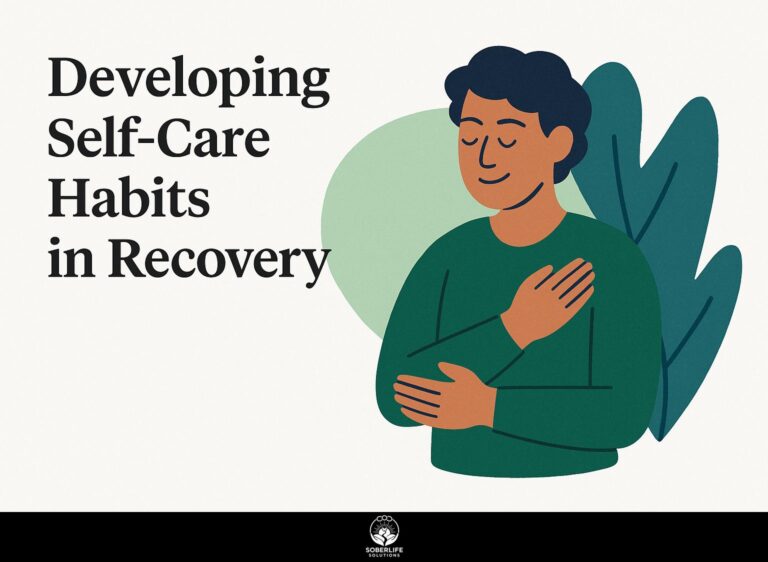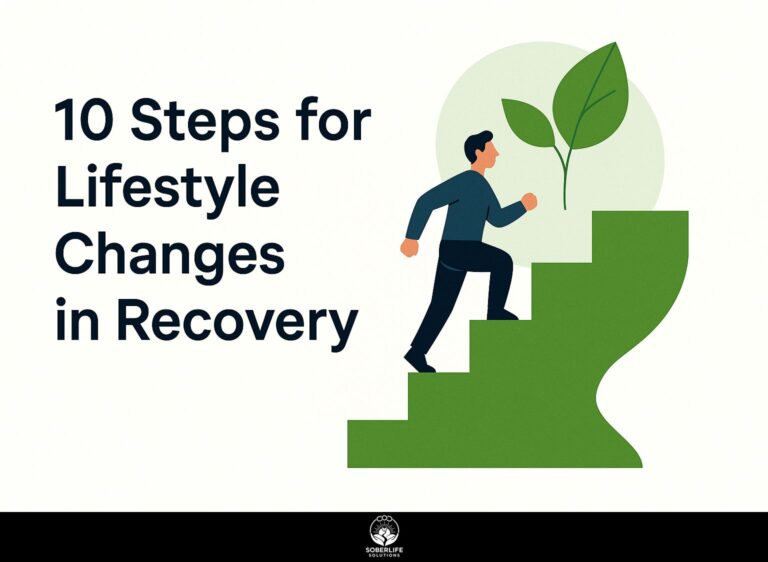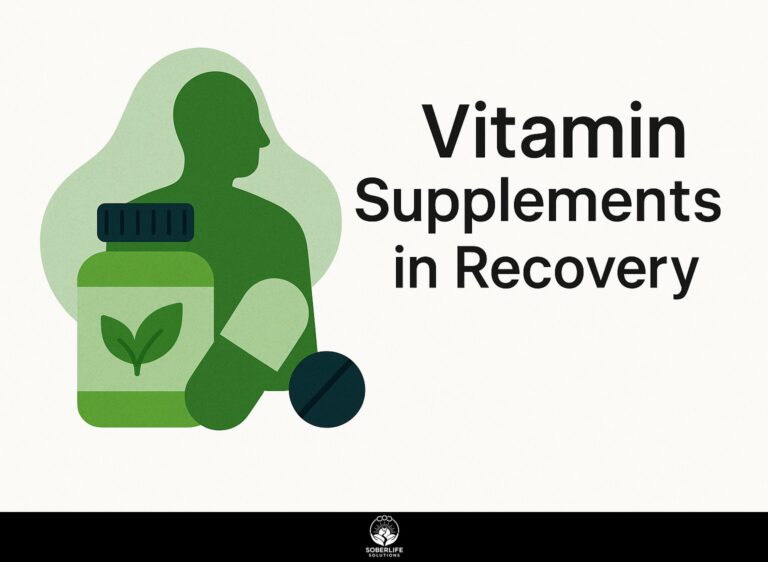Low-Stress Jobs for Addiction Recovery
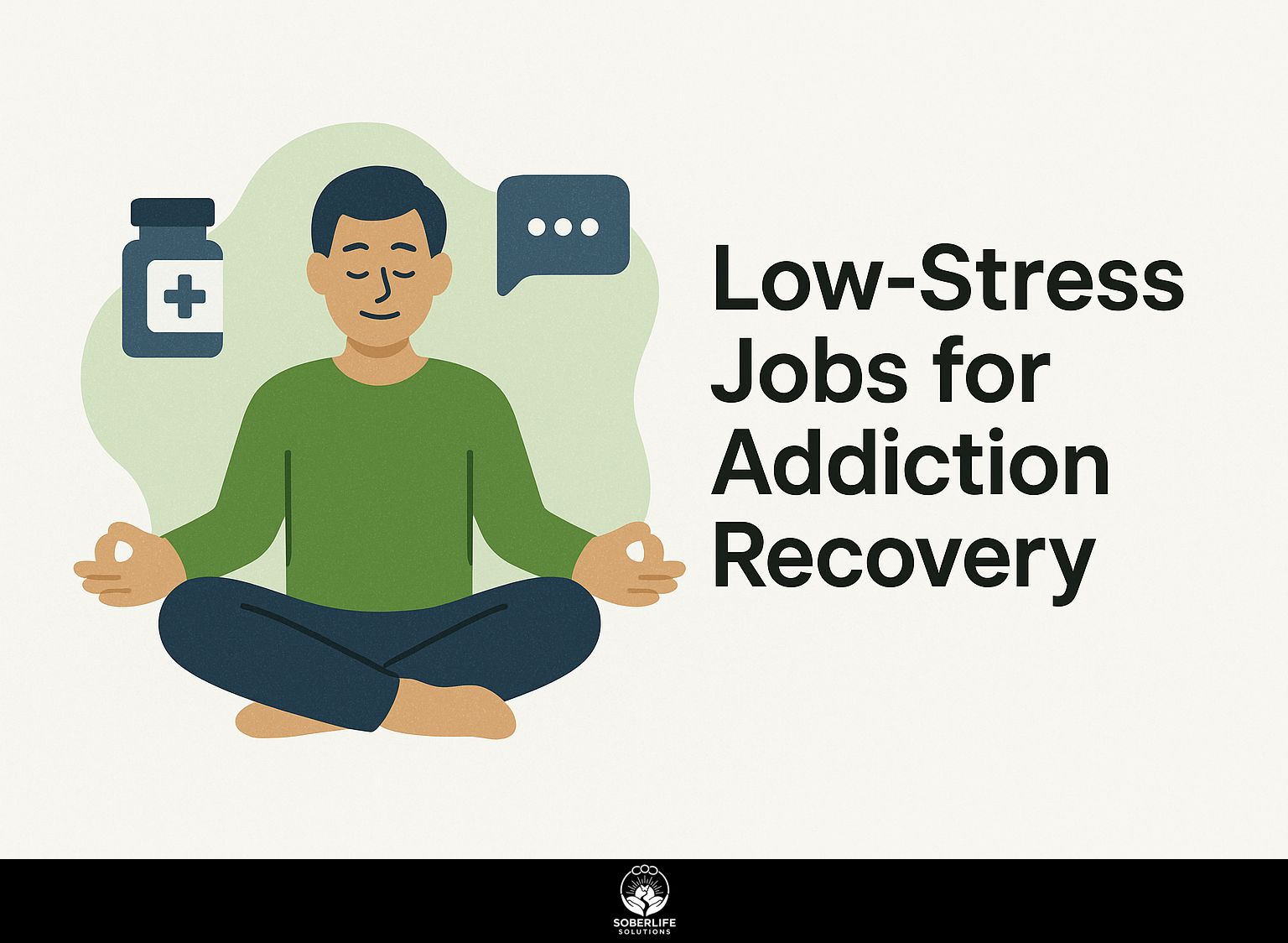
Finding a job can be especially hard for people recovering from addiction. Getting jobs with less stress can aid in your recovery and also help build your support network. This article looks at different job choices that focus on well-being, giving information on industries that care about your career path. Learn how a supportive work setting can help you recover and build confidence and stability in your new job.
Key Takeaways:
Importance for Addiction Recovery
Working in a low-stress job helps people recover by building connections and lowering the chances of relapse.
Doing work gives people a sense of purpose, which is important for staying emotionally steady.
For example, working in helpful places like community centers or wellness programs improves connections with others who know about recovery challenges. Having dependable people, like friends, family, or a support group, can offer motivation and helpful advice.
Regular meetings with this group help you stay responsible and increase motivation, strengthening good habits that help with sobriety. By integrating work with a strong support system, individuals can create a balanced and healthy lifestyle essential for sustained recovery. According to the U.S. Department of Labor, employment opportunities and supportive environments play a crucial role in aiding recovery efforts.
Benefits of Low-Stress Work Environments
Calm workplaces can improve mental health, leading to better self-esteem and job satisfaction.
Building a calm work environment requires specific actions.
- Start by offering flexible working hours, allowing employees to choose when they feel most productive.
- Include regular breaks and encourage team collaboration to build support.
- Tools such as Slack for messaging and Asana for organizing tasks can make workflows more efficient, helping to manage workload better.
- Consider providing access to mindfulness resources or wellness programs, which can help employees manage stress effectively.
When companies focus on creating a supportive work environment, they can improve employee morale and keep staff longer, leading to sustained success. This concept is explored in detail by Indeed, which outlines comprehensive strategies for cultivating a positive work environment.
Types of Low-Stress Jobs
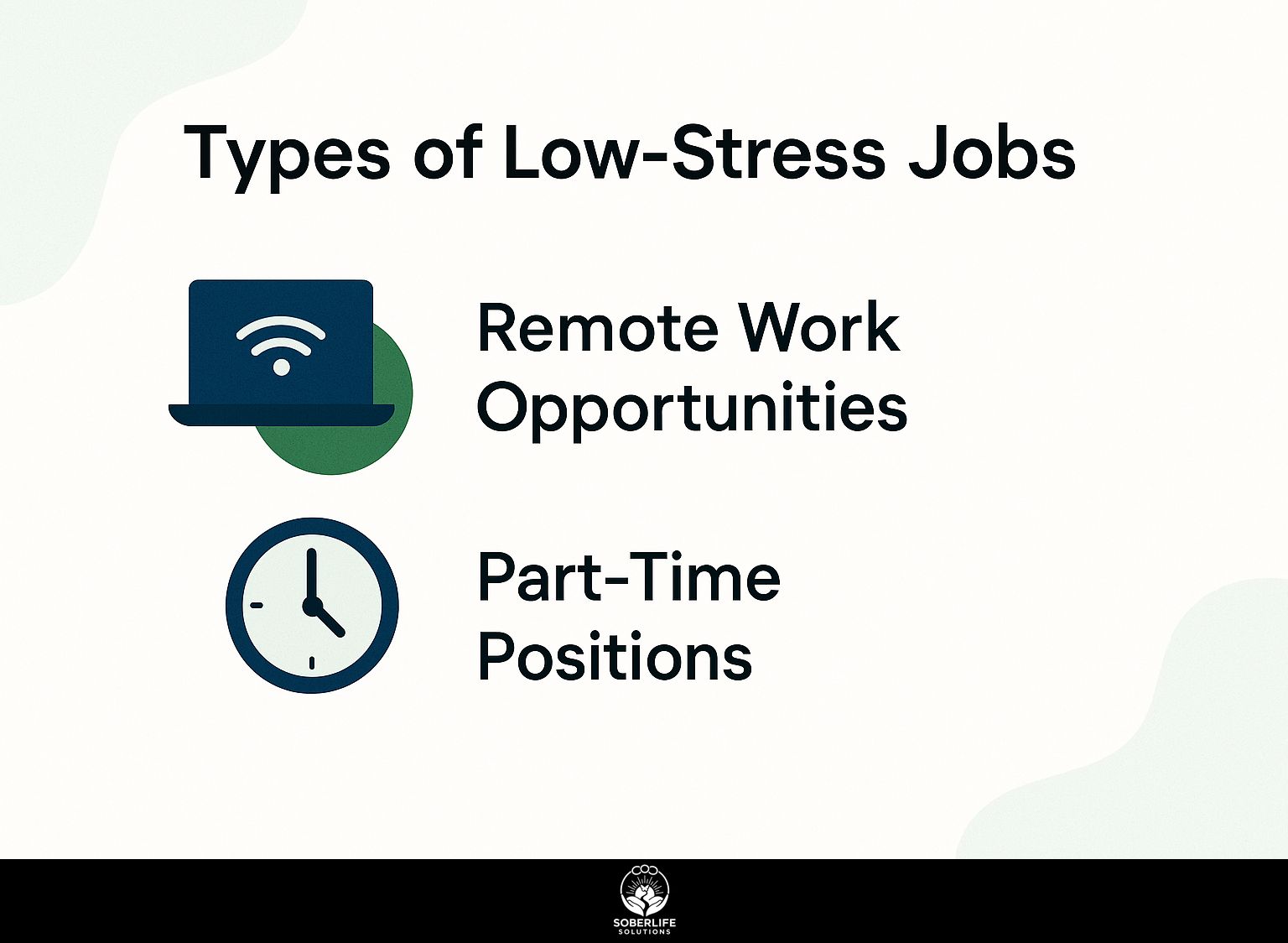
Different low-stress jobs match various skills and personal situations, offering opportunities for people in recovery to find fitting work.
Remote Work Opportunities
Remote work opportunities have surged, offering flexible positions ideal for maintaining a structured routine while focusing on recovery.
Platforms like FlexJobs, Remote.co, and We Work Remotely provide extensive listings of remote job opportunities. These roles often come with flexible hours, allowing individuals to prioritize self-care practices such as meditation, exercise, or therapy sessions. Notably, a US News article underscores how remote work has fundamentally transformed the economy, indicating its permanence and evolving role in personal work-life balance.
For example, a customer support position might offer the freedom to work from 9 AM to 3 PM, letting you maintain evening routines for relaxation. By selecting jobs that fit your schedule, you create a good mindset and balance between work and personal life, which are important for personal and job development.
Part-Time Positions
Part-time jobs are a helpful option for people returning to work while managing their recovery process.
These jobs offer flexibility and useful training opportunities. Websites like Indeed and Snagajob feature various part-time roles in fields such as retail, hospitality, and customer service.
For example, being a cashier helps you learn how to handle money, while working in food service improves your ability to work with others and talk effectively.
Building skills gradually is important; think about beginning with jobs that need little experience and can grow into more complex tasks over time, preparing you for career progress later.
Job Sectors to Consider
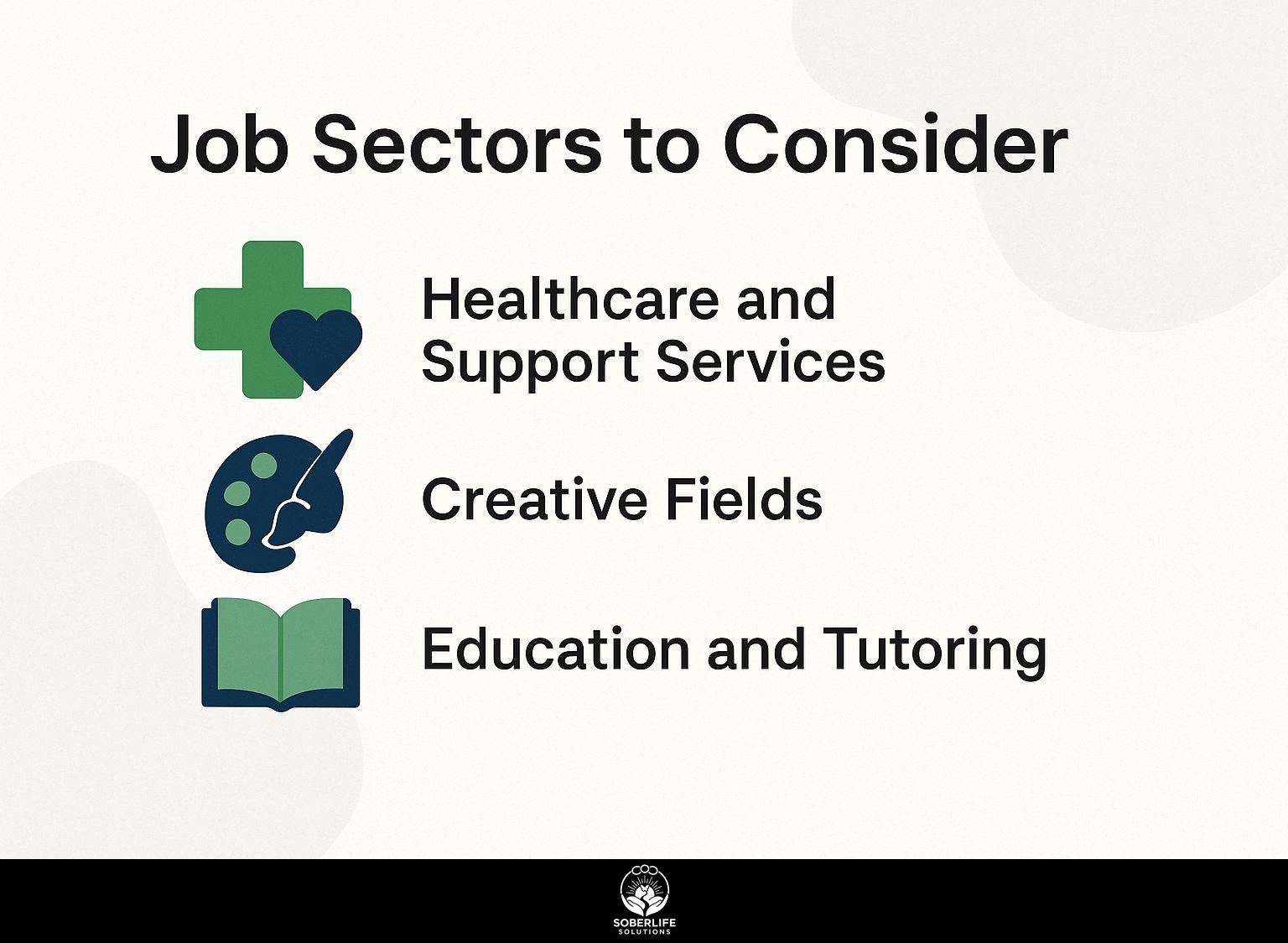
Some job fields are ideal for low-stress work, offering settings that support healing and progress.
Healthcare and Support Services
Healthcare and support services offer important jobs and help recovery by promoting compassion and community help.
Roles such as patient support specialists and community health workers directly contribute to this environment of healing.
For instance, patient support specialists guide individuals through treatment processes by connecting them with resources and providing emotional support. Community health workers facilitate access to local services, encouraging social connections and reducing isolation.
Both positions focus on active listening and compassion to help people grow and recover. This connection improves the lives of the caretakers and creates a helpful community structure.
Creative Fields
Creative fields, such as writing or graphic design, allow individuals to express themselves while providing flexible work environments.
Working on platforms like Upwork or Fiverr can improve your skills and help you create a professional portfolio. Start by identifying your strengths – for instance, if you’re a graphic designer, focus on creating eye-catching logos or marketing materials.
Use tools like Canva for easier design tasks or Adobe Creative Suite for more advanced projects. Begin with small gigs to gain experience and positive reviews, which can later lead to higher-paying opportunities.
Building a diverse portfolio demonstrates your versatility and attracts a wider range of clients.
Education and Tutoring
Positions in education and tutoring offer rewarding experiences that reinforce personal growth while helping others succeed.
To find tutoring jobs, check out platforms like Wyzant and Tutor.com. Create a detailed profile highlighting your qualifications, subjects you specialize in, and availability.
Wyzant lets you decide your charges, while Tutor.com connects you with students based on your skills. Consider networking within local educational communities or joining online forums to connect with potential clients.
By helping others learn, you improve their abilities and strengthen your own knowledge, build patience, and improve communication skills, which helps you grow both in your personal life and at work.
Skills and Qualifications Needed
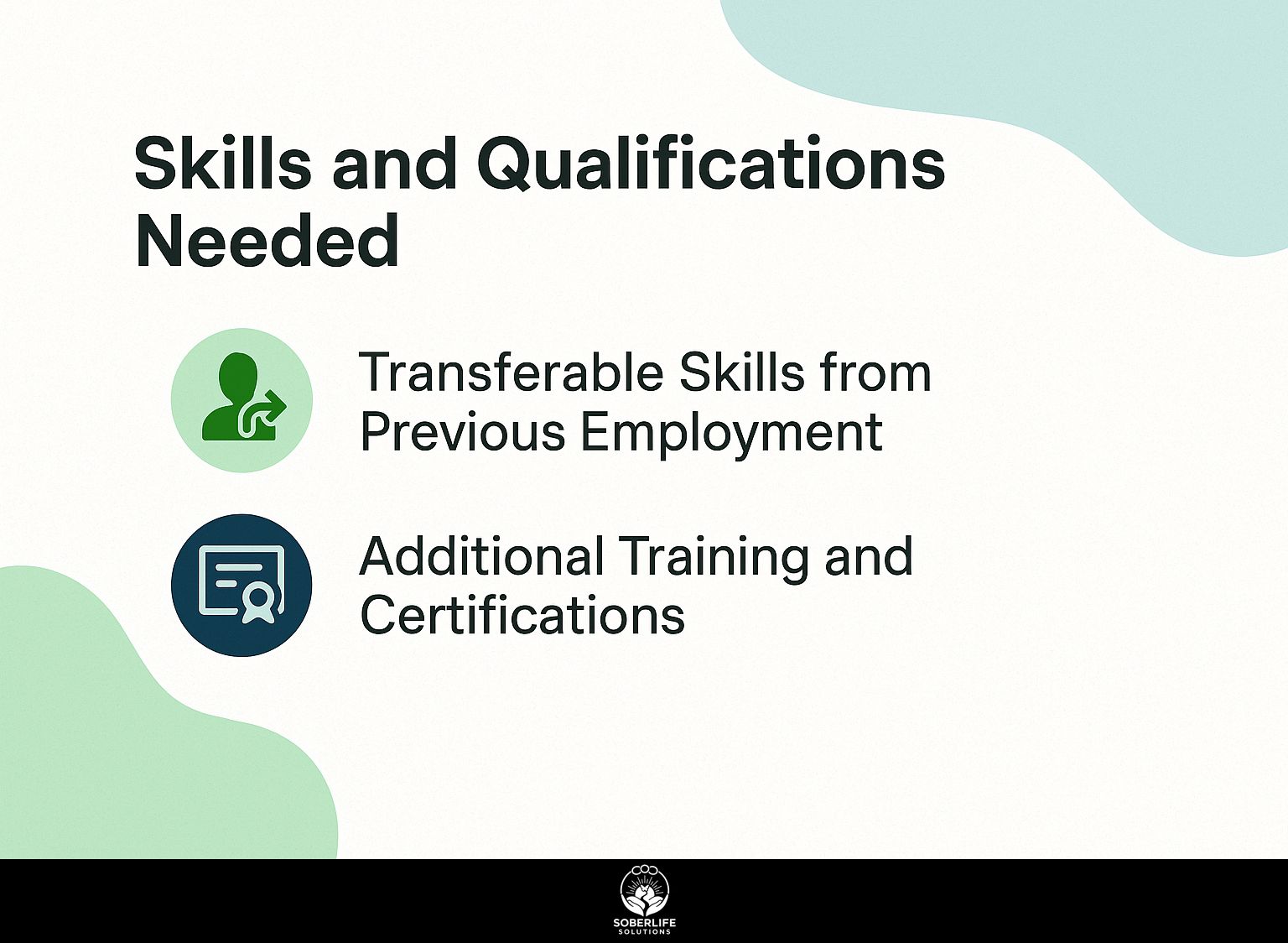
Learning and building the right skills is important for people who want to find low-stress jobs that help in their recovery process.
Transferable Skills from Previous Employment
Many people have abilities that are useful in various jobs, which makes them more likely to get hired in relaxed workplaces.
To effectively showcase these skills on your resume or in interviews, focus on time management and communication. For example, highlight experiences where you coordinated projects or communicated clearly with teams.
Use bullet points to summarize accomplishments, like:
- “Managed a team of five to complete projects ahead of schedule”
- “Maintained open lines of communication with clients, resulting in a 20% increase in satisfaction ratings.”
In interviews, practice explaining how these skills can help the new employer, highlighting your ability to work well and succeed in a positive work environment.
Additional Training and Certifications
Getting more training and certifications can greatly improve job opportunities for people looking for low-stress jobs.
Consider enrolling in online courses like Coursera’s Project Management Principles and Practices or LinkedIn Learning’s Healthcare Project Management.
Coursera offers a thorough certification that includes important project management skills, while LinkedIn Learning focuses on healthcare environments.
Both are recognized by employers and can be completed at your own pace. Earning these credentials enhances your resume and equips you with key skills that employers look for, making you a more competitive candidate.
Finding Low-Stress Job Opportunities
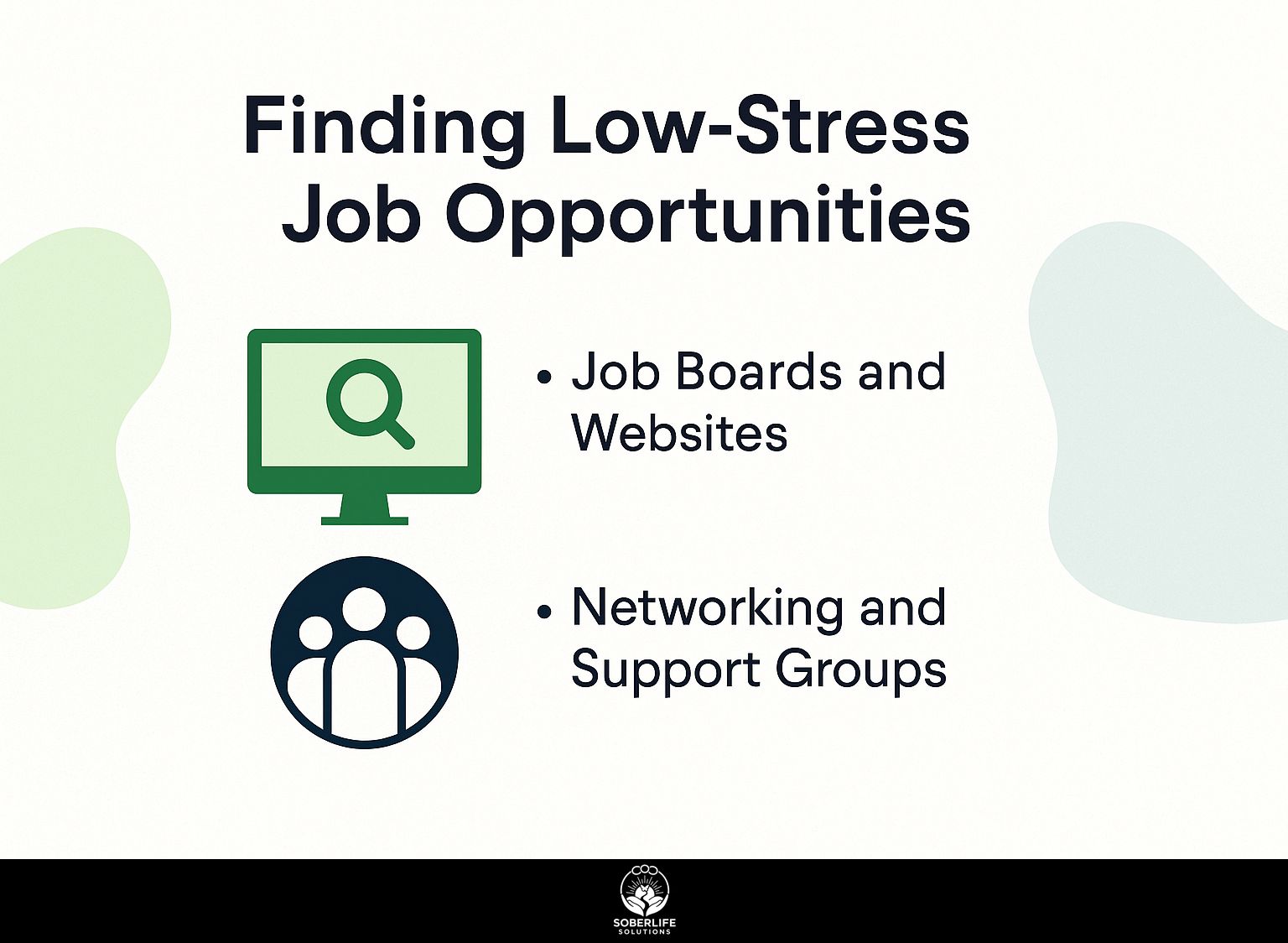
To find job opportunities with less stress, use various resources like job boards and personal contacts.
Job Boards and Websites
Many job boards focus on posting low-stress jobs, serving as helpful tools for people looking for work while recovering.
Among the best options is FlexJobs, which lists remote, part-time, and freelance jobs in different industries. Remote.co specializes in remote jobs, helping you find work-from-home opportunities without location limits.
Local employment agencies often have specific programs that help people in recovery find appropriate jobs. For example, a person searching for a job in San Francisco might go to the local employment office to receive personal assistance and join training sessions, helping them get back to work.
Networking and Support Groups
Building relationships in support groups can lead to job openings and important contacts for people recovering.
Start attending local support groups and online communities by participating in recovery meetings such as Alcoholics Anonymous or SMART Recovery. Meeting in person builds trust and connections.
Use platforms such as Facebook groups or LinkedIn to meet and network with others in recovery-focused settings. For instance, participate in discussions, share experiences, and ask for advice on job searches or placements.
Consider hosting virtual meet-ups or workshops focused on resume building or interview skills, enhancing your visibility and providing value to the network.
Tips for Managing Stress in the Workplace
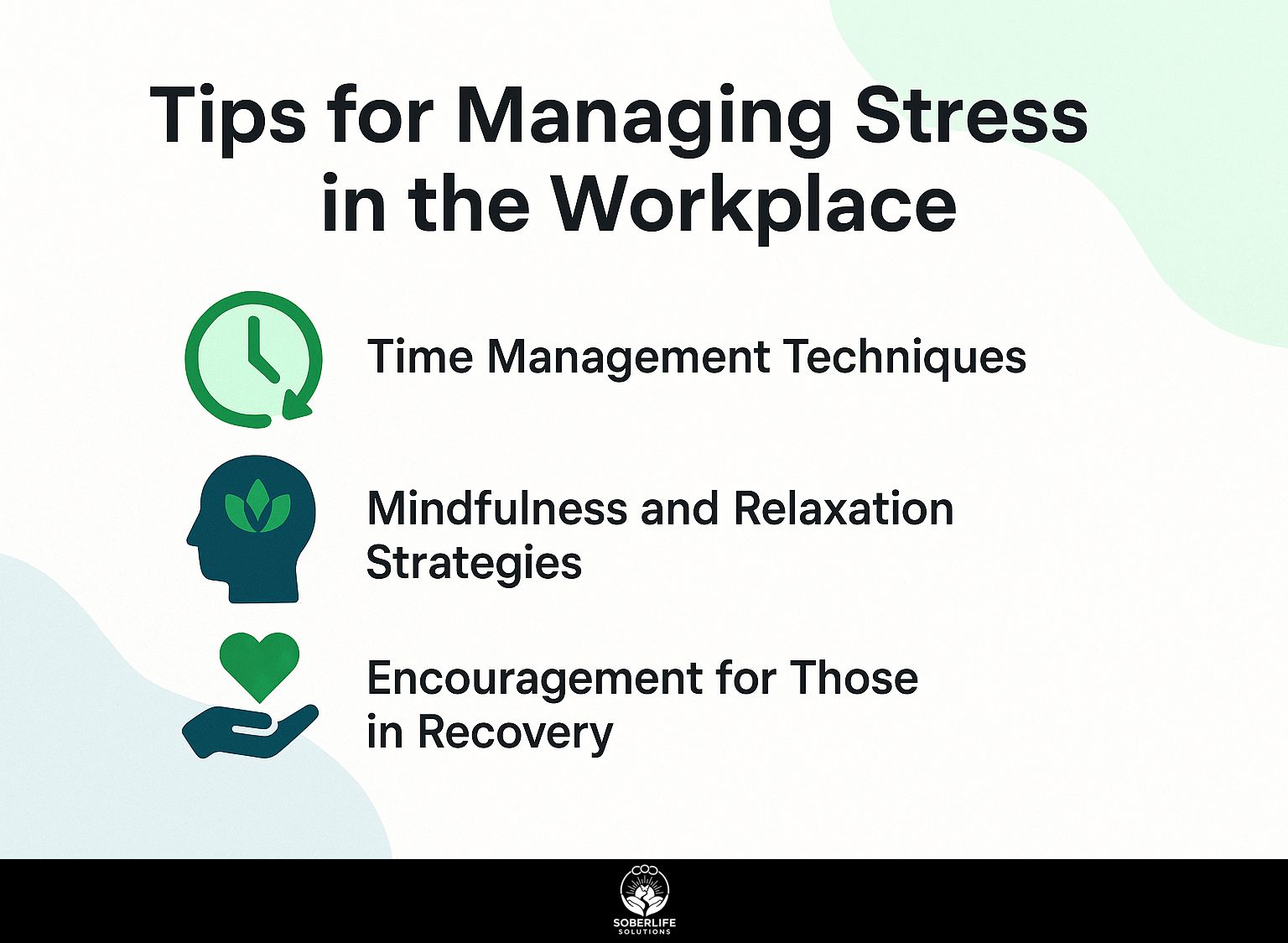
Applying practical strategies to manage stress can significantly improve the workplace for individuals who are recovering. For those seeking effective techniques, our article on managing stress and emotions offers essential insights.
Time Management Techniques
Effective time management techniques can help individuals balance work responsibilities and recovery routines, minimizing stress.
Two powerful methods to employ are the Pomodoro Technique and time-blocking.
The Pomodoro Technique involves focusing on your task for 25 minutes, followed by a 5-minute rest. You can use timers like Focus Booster or Pomofocus to keep yourself focused.
On the other hand, time-blocking is about scheduling specific tasks within defined time slots, which can be easily managed using tools such as Google Calendar or Trello.
By combining these strategies, you can increase productivity while allowing regular breaks for rest, leading to a better work-life balance.
Mindfulness and Relaxation Strategies
Incorporating mindfulness and relaxation strategies into daily routines can greatly reduce workplace stress and support recovery.
Start by practicing deep breathing exercises for a few minutes each hour to reset your focus. You can download meditation apps like Headspace or Calm, which provide guided sessions designed for short breaks.
Pause regularly-stop for 5 minutes each hour and take a 15-minute break after every four hours to refresh your mind.
Organizing your workspace can help reduce stress and increase your efficiency, resulting in a more balanced workday.
Encouragement for Those in Recovery
For people recovering, being aware that jobs with low stress are available can significantly improve their emotional readiness to return to work.
Exploring options like remote customer service, freelance writing, or data entry can provide a smoother transition. Websites like FlexJobs and Upwork provide job listings for people looking for flexible, less stressful work settings.
Think about using local job centers that focus on helping people in recovery; they often offer workshops and counseling. Joining helpful groups, whether on the internet or face-to-face, can greatly help you stay motivated and knowledgeable during your job search.
Frequently Asked Questions
What are some examples of low-stress jobs for addiction recovery?
Some examples of jobs with low stress for those in addiction recovery are administrative assistant, customer service representative, graphic designer, and yoga instructor.
Why are low-stress jobs beneficial for those in addiction recovery?
Jobs with less pressure can offer a stable and regular schedule, which is important for people recovering from addiction. They also allow for a lower level of pressure and stress, which can help prevent relapse.
What skills or qualifications are needed for low-stress jobs in addiction recovery?
The skills and qualifications needed for low-stress jobs in addiction recovery can vary depending on the specific job, but some common skills include good communication, organization, and time management. Some jobs may also require specific certifications or training.
Can low-stress jobs in addiction recovery still provide a sense of purpose and fulfillment?
Yes, absolutely. Low-stress jobs can still provide a sense of purpose and fulfillment through helping others, using creative skills, or contributing to a team. It’s important to find a job that aligns with your interests and values.
Are there any specific industries or companies that offer low-stress jobs for addiction recovery?
Some industries and companies might be more aware and helpful to employees recovering from addiction, like those in healthcare, education, or social services. It’s important to research and find companies with a positive and accepting work culture.
How can someone find low-stress jobs for addiction recovery?
There are various resources available for finding low-stress jobs for addiction recovery, such as job search websites, career counseling services, and support groups. Networking and reaching out to connections can also be helpful in finding job opportunities.

